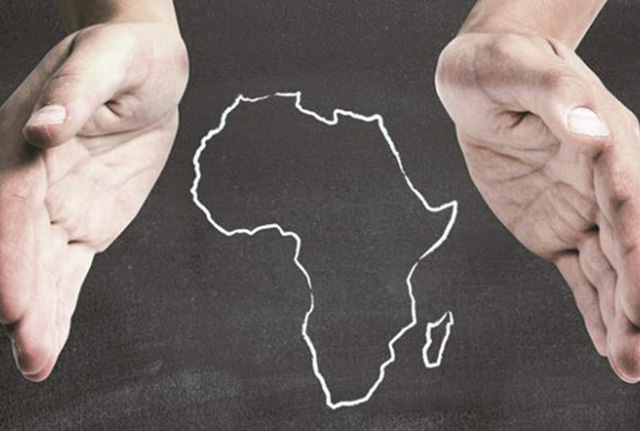What makes people love their country?

 Blessing Musariri Shelling the Nuts
Blessing Musariri Shelling the Nuts
The truth is, it is not an easy thing to pack up a life and take it elsewhere. Too much is lost in transition. It is not a simple thing to leave everything you have known and own to go and be a tenant in somebody else’s house.
I love the Zimbabwe in which I grew up. I learned to live in the Zimbabwe I came back to after my higher education. I was fascinated by the years of the crisis — I was amazed and challenged by the necessary daily adjustments, it was the stuff of urban legend.
I am confused and often dismayed and disheartened by the Zimbabwe in which I find myself currently living.
It has run the gamut and come to a place where if anybody knows what’s next, they are not telling.
In my youth, we played a game called Statues.
In this game, one person would stand at one end of a length of garden, turn around and count while a group advanced on their turned back.
After a certain number, the counter would turn around suddenly and yell, “Statues”, and everyone had to freeze in position and stay suspended until the counter turned around again and resumed the count.
The point of the game was to advance to a point where one could touch the counter and then escape back to base without the counter tagging them or anyone else as the next to replace them. If the counter caught no one they would continue in that position until they did.
All the fun was in the escaping and in managing to hold a frozen position for the length of time required by the counter.
If you moved while being a statue, that meant you were out of the game.
We would play for hours, counting, freezing in place, advancing, screaming in retreat, trying to get back to the safe zone without being caught and starting all over again.
These were halcyon days.
Nowadays, it seems the counter is counting and we who should be advancing, are standing still while others have long since opted out of the game.
These would be the Diasporans.
I confess, I am an ever aspiring Diasporan — someone who wants to eat their cake and still have it.
I want a home here and a life elsewhere. My support base in the form of family and consistent friends is here but creative opportunity and stimulation are in other places.
Which is the greater need? Which is the bigger motivation and what are the obstacles? There are many, and varied. Every decision has its pros and cons and, of course, the biggest obstacle is immigration rules.
As a person who has a nomadic soul, I often find myself envying friends and family in the Diaspora, or those who were forward thinking enough to ensure options for themselves in terms of cross-border movement, and yet, I find a happiness here that is sacrificed when I am elsewhere.
I spent some time visiting my cousin in a small German town last year and what I quickly realised there was that black people were greatly in the minority.
This manifested in the obligation to nod at or greet any other black person one encountered.
And if that wasn’t proof enough that all the black people were not simply closed up working in offices all day and so not visible on the streets during the day, one day while enjoying a tomato-sauce laden bratwurst, minding my own business sitting along a low church wall, a fellow African stopped and said to me: “You must be new here. I think this because I have lived here five years and I have never bumped into you.” Ordinarily, I might have been surprised by this but I had been there long enough to accept the inevitable.
After something of introductions, he asked politely if he might sit down and chat for a while. I was feeling charitable, so I agreed.
He told me he was from Cameroon and that he had just been back home — a sad occasion this time, he said, as his mother had passed on.
I commiserated. He talked about living away from home and moving back by inches every time he visited. “If I stay here more than six months at a time I start to go a little crazy. Europeans don’t want to understand the black man, so I don’t fight it anymore. I just live my life.” He talked about black historians and one Sir Gerald Massey. He concluded his discourse by saying: “You will never know the truth if the enemy tells your story.”
In the past few years the “immigrant story” has been trending on the international literary scene. My first exposure to the immigrant story was when Segun Afolabi won the Caine Prize for his short story “Monday Morning”.
This is when I started paying attention to the trials and tribulations of people who have left home in search of better opportunities and over the years I have come to understand one fundamental truth — few people leave, who never want to return.
Maybe not to return forever, but everyone longs for home in some way.
I see it in the conscientiousness of sending money, medication and other necessities back home on a regular basis, sometimes even at the cost of spending years away without ever seeing family and friends because money that would be for travel is used to help those who remained back home.
I see it when I visit homes abroad where friends and family cannot bear to throw things out because they know someone back home could make good use of it.
I now hear pain and the longing behind the angry pronouncements about the “situation back home” because people feel they have no choice but to remain where they are now because financially and socially, their lives are better.
I used to think, hey well, they made a choice to leave, didn’t they?
They could have stuck it out like the rest of us, and I would instantly be on the defensive when they criticised everything back home and suggested vociferously that I should also leave because what am I doing wasting my life in a place that has “gone to the dogs”?
The truth is, it is not an easy thing to pack up a life and take it elsewhere.
Too much is lost in transition.
It is not a simple thing to leave everything you have known and own to go and be a tenant in somebody else’s house.
The paperwork, the adjustments, the disconnects, the strange new twangs, tones, inflections and ways of being.
It is exciting, yes, to be out there, moving and shaking, meeting new people, finding new opportunities, making money and building a life that is more prosperous and progressive and, yes, there are people out there who are much happier away and don’t think too much of what they left behind, particularly those who have managed to immigrate with their core family and feel better represented in their new set-up.
It is those who have left people close to them who stay connected and still think of this country as kumusha, maybe not so much as home, but as in, the place from which they came—their point of origin.
This begs the question, are people connected to land, or the people in it? Are there people who would return simply because of the place even if there was no one here who remembered them?
In places where it is practice to bury umbilical cords when a child is born, one could imagine a spiritual pull, back to a place, but even then, this bears elements of whimsy.
Back in the day, there were strong traditional ties in the form of spiritual connections to one’s ancestors and the rituals that went with that, but in the new dispensation where much of tradition is challenged by modern, Western education and culture, such connections are tenuous and mostly dismissed as no longer relevant or desirable.
So what is it that keeps those who stay, rooted to a place, that brings back those who have left, that prevents those who would like to go, from leaving and that never leaves us even when we stay away?










Comments